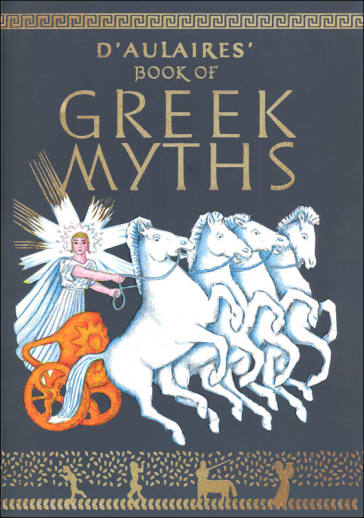Newly expanded edition includes an exclusive behind the scenes look at the book's creation, a biography of the life and work of Ingri and Edgar D'Aulaire, sketches from the authors' personal notebooks and photos from their family album.
Golden fleece, titans, and muses, oh my! This is a very thorough collection of ancient Greek myths accompanied by artful pencil drawings in color and black and white.
Starting with Gaea and Uranus (Earth and sky), stories are chronological to the Titans, Zeus and his descendants. Supporting characters are also given their due. Children will read about Hera, Hades, Persephone, Pandora, Centaurs, Orpheus, the Gorgon, King Midas, Oedipus, and more.
The tales are written for children to understand. Add this book to a unit study of ancient Greece, the seven wonders of the ancient world, the Mediterranean region, or even as a study of ancient religions. Compare their beliefs with modern ones. ~Sara

